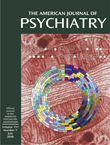Recurrence of Geriatric Depression
A recent article by Alastair J. Flint, M.B., Ch.B., F.R.C.P.C., F.R.A.N.Z.C.P., and Sandra L. Rifat, Ph.D. (1), describing a naturalistic study of the recurrence of first-episode geriatric depression after the discontinuation of antidepressants, is an important contribution to the literature on the prognosis of depression in elderly subjects. The authors deserve praise for their attempts to control for two prognostic factors (age at onset and number of previous episodes) in the design of this study and to determine the effect of nine other potential prognostic factors (age, sex, duration and severity of index episode, presence of anxiety, cognitive impairment, physical illness, life events and difficulties, and time to response to treatment) in the analysis. Nonetheless, we require more information to clarify the usefulness of their finding of a 61% rate of recurrence or recurrence within 2 years. First, it is necessary to know more about the 21 depressed patients included in the study (e.g., sex, socioeconomic status, living arrangements, and source of referral). Second, it is important to know the number of patients with first-episode, late-onset depression at each stage of the study (i.e., numbers enrolled, responding to treatment, beginning maintenance therapy, and noncompliant or relapsing during maintenance therapy). Third, because the investigators conducting the outcome assessments were not blind to discontinuation, it would be helpful to know if the authors tried to examine or control for potential assessment bias. Finally, it would be useful to know the 95% confidence interval (CI) of the recurrence rate to better judge the merits of arguments for shorter- versus longer-term maintenance therapy in this population.
1. Flint AJ, Rifat SL: Recurrence of first-episode geriatric depression after discontinuation of maintenance antidepressants. Am J Psychiatry 1999; 156:943–945Link, Google Scholar



